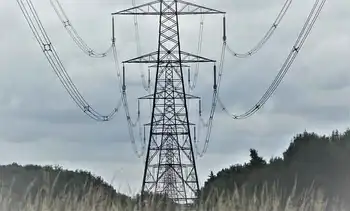Diesel a GO over electric trains
You have to hand it to the Clean Train Coalition: They put on a heck of a protest. The folksy tune above comes from a slick YouTube video on their campaign against expanding diesel-train traffic through Toronto's west end.
The proposed rail expansion would step up GO Transit service to the northwest of Toronto and link Pearson airport to Union Station downtown. That would improve air quality by taking tens of thousands of motorists out of their cars and putting them in commuter trains instead.
But never mind all that: the coalition says that the rail project would jeopardize the health of those who live near the line by exposing them to dangerous diesel fumes. So now, the province slapped some tough conditions on the rail link, ordering it to adhere to new U.S. rules on diesel train emissions.
What do you imagine happened next? Did the coalition proclaim victory and let out a cheer? Not a bit of it. It insists that only electric trains, at a cost in the hundreds of millions, would protect the people who live along the line from the deadly threat of diesel.
That position was always a bit dubious. Diesel commuter trains are in use in cities all over North America, from California's Caltrain to Florida's Tri-Rail. Boston chose diesel for its new Greenbush commuter line, which started service in 2007. The Sonoma-Marin transit system in the San Francisco Bay area is using diesel for its new commuter line, too.
Although it is associated with black smoke and an acrid smell, diesel has always been a more efficient fuel than gasoline, producing less carbon monoxide and carbon dioxide. That is why it is widely used in Europe to fuel cars.
New U.S. environmental standards make it cleaner still, decreasing the allowable level of sulphur in diesel fuel used in locomotives by 99 per cent. In March 2008, the Environmental Protection Agency announced regulations to combat the two most serious remaining problems with diesel: nitrogen oxide and soot. Under these rules, railroads will have to cut soot by 90 per cent and nitrogen oxide by 80 per cent.
It is this highly exacting standard that the province is imposing on the Toronto rail expansion in exchange for approving the project. U.S. environmental groups congratulated the EPA when it brought in the new rules after a long tussle with the railroads. But the Clean Train Coalition is still not satisfied, insisting electric really is the "way to go."
Transit authorities have not closed the door the idea. They are studying the possibility of converting GO lines to electricity in the years to come. Metrolinx, the regional transit agency, is constructing the northwest rail project to allow for overhead power lines.
But electric is way more expensive. Metrolinx head Rob Prichard says it would cost $1.5-billion to put electrical-powered trains on the northwest rail expansion — and a whopping $7-billion to $10-billion to electrify the whole GO system.
It is hard to justify that expense if new, cleaner diesel engines can mitigate the health fears of residents and get trains running to Pearson at last. So raise your voice, Ontario: for now at least, clean diesel is the way to go.
Related News

Canadian power crews head to Irma-hit Florida to help restore service
TORONTO - Hundreds of Canadian power crews are heading to Florida to help restore power to millions of people affected by Hurricane Irma.
Two dozen Nova Scotia Power employees were en route Tampa on Tuesday morning. An additional 175 Hydro One employees from across Ontario are also heading south. Tuesday to assist after receiving a request for assistance from Tampa Electric.
Nearly 7½ million customers across five states were without power Tuesday morning as Irma — now a tropical storm — continued inland.
In an update On Tuesday, Florida Power & Light said its "army" of crews had already restored power to 40…




